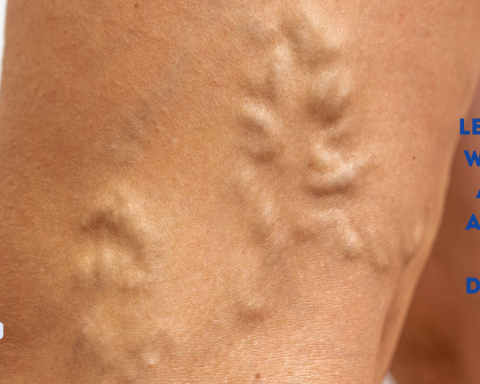Urge incontinence occurs when someone experiences a sudden strong need to urinate but cannot reach the washroom in time to empty their bladder. Thus, it’s sometimes also referred to as an overactive bladder. Essentially, when the bladder is overactive, it contracts abnormally, which can cause strong movements or urges that end up leaking through the sphincter. While an overactive bladder or urge incontinence could affect anyone of any age, women and the elderly are more at risk of experiencing this condition.
There isn’t one specific common cause that can trigger urge incontinence, but rather a few more common reasons why someone might suffer from this condition. Here is a quick breakdown of some of the more common causes of urge incontinence.
Nerve Damage
One of the biggest reasons that the bladder may begin to contract involuntarily is because the nerves that communicate with the bladder are damaged, and therefore not sending correct signals. If the bladder doesn’t tell the brain that it’s full and needs to urinate, the brain won’t be able to tell the body to use the washroom.
Nerve damage could occur for a variety of reasons, including:
- Spinal cord injury
- Multiple sclerosis
- Parkinson’s disease
- Alzheimer’s disease
- Stroke
Irritated Bladder
When the bladder becomes overstimulated or irritated, it can begin contracting involuntarily in response to those triggers. Sometimes bladder irritation can’t be avoided because it comes as a symptom of another disease or condition, but sometimes what you eat and drink can play a role if you’re choosing foods that are known bladder irritants.
Some foods that can irritate the bladder include:
- Alcohol
- Caffeine
- Acidic fruits and juices
- Carbonated beverages
- Spicy foods
- Chocolate
- Sugar
Consuming food and beverages that are linked to bladder irritation in larger amounts on a regular can even sometimes give you temporary incontinence, which mimics the symptoms in a smaller time frame.
Bladder Cancer
Bladder cancer is cancer that begins with tumors that develop in the bladder. Most of the time, bladder cancer begins with the cells that line the bladder, known as transitional cells, but it can also start in other areas of the urinary tract system and spread to the bladder itself. There is no specific known cause of bladder cancer, but there are some factors that have been connected to it, such as smoking, bladder infection, chemical exposure, and chronic irritation of the bladder. Most of the time, individuals with bladder cancer will experience frequent urge urination.
Enlarged Prostate
As men age, their prostate enlarges, meaning that the gland itself has increased in size. This happens to the majority of the male population. It’s a natural part of aging, and doesn’t usually cause any pain, but sometimes there can be complications that trigger urge incontinence. As the prostate grows, it can begin to block the urine as it passes through the urethra, causing difficulty by blocking bladder activity. Sometimes the bladder is able to adapt to this new situation and strengthen the muscles, but other times it can’t completely empty, which causes incontinence.
Bladder Stones, Infection, or Other Bladder Conditions
Certain other bladder conditions, such as bladder stones, inflammation, or infection, could cause the bladder to begin sending mixed signals, contract involuntarily, and possibly leak.
Bladder Stones: All urine is approximately 10% concentrated, meaning there are other components such as minerals, proteins, and waste within it, while the other 90% is water. When those items don’t get flushed out, they can begin to crystallize within the bladder and leave small mineral build ups known as bladder stones. The most common reasons these stones form are dehydration, enlarged prostate, irritated bladder, or urinary tract infections.
Bladder Infection: A bladder infection is a type of urinary tract infection (UTI) that could lead to urge incontinence. The majority of bladder infections are caused by bacteria within the urinary system, and can have a significant impact on its overall function.
Interstitial Cystitis: This is a chronic condition also known as painful bladder syndrome that causes pressure to build on the bladder, which can become very painful over time. Interstitial cystitis can also lead to bladder confusion, where the bladder begins to send mixed signals that could lead to incontinence.
Diagnosing the Cause
Ultimately, understanding the cause of your urge incontinence is the key to determining if there is a solution you can implement to either get rid of the condition or manage the symptoms enough so they don’t get in the way of your everyday life. A doctor will go through a range of tests with you to figure out what’s causing your bladder distress and the solutions that are available to help you.








